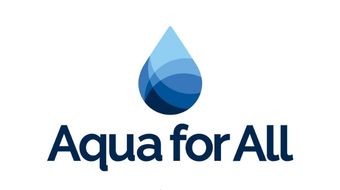Earth Day ignites us to #InvestInOurPlanet. This calls for collective action, as only together, we can work towards global goals set for 2030 and contribute towards a prosperous and sustainable planet. One such goal is universal access to healthy and sustainable sanitation (UN SDG 6.2). More than access alone, sustainable sanitation can positively influence a vast array of environmental factors such as mitigating climate change, improving the food supply, decreasing water usage, and offering greener energy such as biogas.
The Toilet Board Coalition is a non-profit, business-led membership organisation unleashing the immense value and market behind sanitation – building a Sanitation Economy. This great potential was recognised by a group of multinational corporations who united in 2015 and founded the Toilet Board Coalition to lead private sector solutions and engagement in SDG.6.2. These corporations include Unilever, Kimberly-Clark and LIXIL.
The Toilet Board Coalition’s flagship programme is the Accelerator which readies sanitation SMEs (small and medium-sized enterprises) for scale and connects them with corporates, investors, and governments to unlock their growth. This collaborative effort is essential as SMEs bring innovation and local market understanding while corporates bring skills and expertise at building businesses. Investors accelerate growth and governments can amplify and lead change by adopting the business solutions.
LIXIL, a founding Member of the Toilet Board Coalition has since launched their SATO brand which provides products ranging from toilet pans to hand washing solutions for underserved communities.
Daigo Ishiyama, Leader of Innovation for SATO explains how consumer-centric and environment-centric innovations play a key role in product development processes. “With climate change there are going to be a lot more water stressed areas going forward. The water saving feature of SATO’s products is something that we hold dear to the features and benefits that our solutions can bring. For instance, our toilets can save around 80% of water per flush and proper handwashing can be done with as little as 100ml of water using SATO Tap. We also design our products using the minimum material without sacrificing the longevity and quality of the products. We currently make our products out of plastic but that is for a good reason: ease of manufacturing and distribution, affordability, longevity and recycling possibilities. We do a lot of industry testing to ensure the products stay in use for a long time, as seen in trap-door testing to 900,000 cycles for our toilets, or the Tap abuse testing to 3.65 million cycles, both set up to simulate about 100 years of use for a family of 5 people.”
Daigo has been involved in mentoring entrepreneurs in the Accelerator programme to help develop ideas into viable business solutions. He brings the latest knowledge and thinking regarding toilet systems, product development and manufacturing techniques to innovate effective, affordable, sustainable and aspirational products. “The Accelerator programme brings people together from different expertise and regions. It’s a great mechanism for partnerships and creating scale. We can’t do everything by ourselves, we need complementary technologies that will take us farther and faster.” Daigo shares an example of a partnership between SATO and TrashCon that originated from the Accelerator. “We are working together with TrashCon, who transforms waste into building materials. We are in the middle of developing products using this material, keeping the environment cleaner” He shares a second example: “We are also working with Pikkuvihrea from the 2021 cohort that makes a wonderful compost toilet. We’re hoping to introduce their backend treatment solution to our frontend toilets. Partnerships like these will enable us to provide more comprehensive solutions faster and sustainably.”
With the growing population and more clustered living, the need for sanitation is going to be even more pressing. To reach SDG6.2 there is a need for sustainable innovation and scale. Together, we have a chance at achieving sanitation for all by 2030. We must #InvestInOurPlanet and #PartnerForOurPlanet.
Photos by: ©Toilet Board Coalition | SATO at Global Sanitation Economy Summit held in Pune, India






